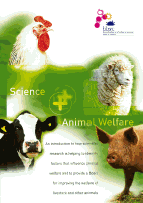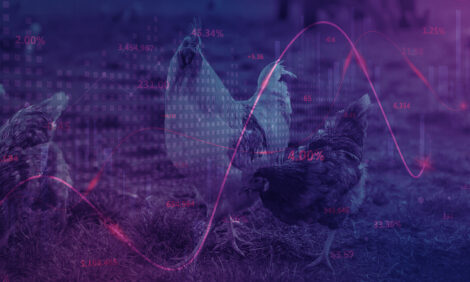



Improving Animal Welfare through Scientific Research
By The Biotechnology and Biological Sciences Research Council - An introduction to how scientific research is helping to identify factors that influence animal welfare and to provide a basis for improving the welfare of livestock and other animals. Animal welfare is a complex issue that impinges to varying degrees on the many different ways that humans use and control other animals, for example in farming and food production, in pest control and as companion animals. Whilst most people in the UK would probably agree that animal welfare is important, individuals may differ considerably in what they regard to be the most appropriate level of welfare for different animals in different situations.
Animal welfare is a complex issue that impinges to varying degrees on the many different ways that humans use and control other animals, for example in farming and food production, in pest control and as companion animals. Whilst most people in the UK would probably agree that animal welfare is important, individuals may differ considerably in what they regard to be the most appropriate level of welfare for different animals in different situations.
Measuring animal welfare and evaluating different welfare issues can be very difficult. For example, battery cage, perchery and freerange systems for hens each pose their own welfare pros and cons. How these should be compared and “scored” for welfare is not always obvious. Most farm livestock and companion animals are quite different from their ancestors that faced a variety of threats from predators and disease. What is the impact on an animal’s well being of removing such natural threats through domestication? Is this more or less harmful to animal welfare than the stresses associated with intensive farming, or those suffered by animals, bred for intensive systems, that are moved to more extensive situations?
Some welfare issues are counter-intuitive: animals may fare better under conditions that seem less attractive to humans than under those that we would prefer; and we may misinterpret animals’ responses and so wrongly attribute motivation or stresses to them.
This booklet presents some examples of how current and recent scientific research is helping to identify factors that contribute to animal welfare, and how such research can also provide a basis for practical measures for improving welfare generally and solving specific problems. Although this booklet focuses to a considerable extent on issues of livestock welfare, a topic that covers a very large number of animals - for example, a total of over 30 million cattle, sheep and pigs are slaughtered each year in the UK, - much of the basic research is also highly relevant to the welfare of other animals, including laboratory animals, animals in zoos and companion animals.
This booklet is aimed at enhancing public awareness and debate about animal welfare. It draws largely on research that is funded by the Biotechnology and Biological Sciences Research Council (BBSRC) or undertaken at BBSRC-sponsored research institutes. It is published as a companion to two other BBSRC publications: “Ethics, Morality and Animal Biotechnology” and “The Use of Animals in Biological Research”.
To continue reading this article please click on one of the following sections:
Difficulties in evaluating animal welfare
Research approaches
What animals can tell us about how they perceive the world
What animals can tell us about their needs and preferences
Some specific welfare issues
Some practical issues for improving livestock welfare
Welfare and health
The Biotechnology and Biological Sciences Research Council - Summer 2002








